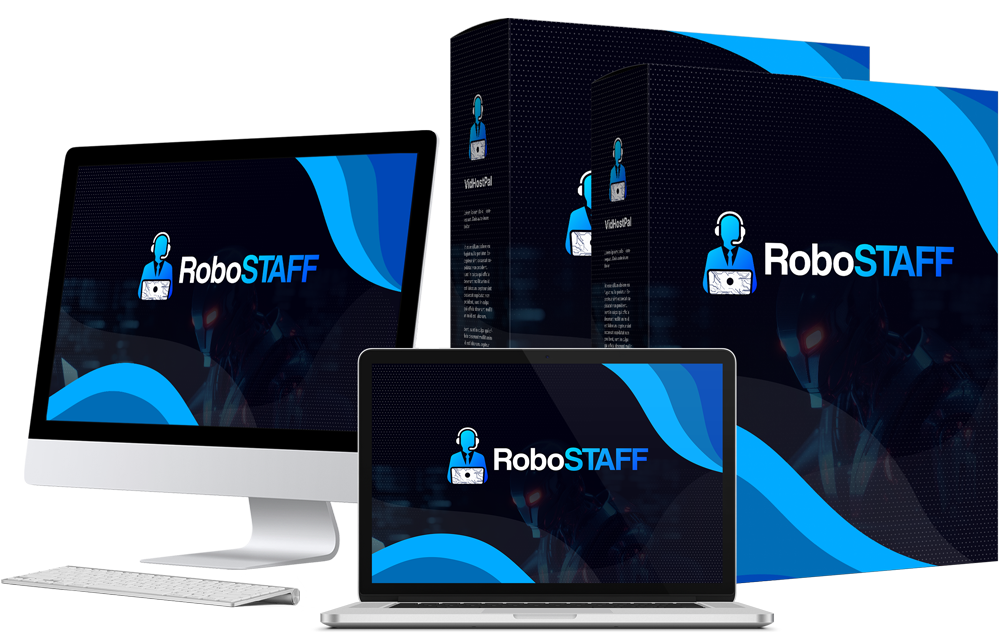In today’s rapidly evolving technological landscape, artificial intelligence (AI) is transforming various industries, including virtual staffing. AI-powered virtual staff, like RoboSTAFF, offer numerous benefits such as increased efficiency, cost savings, and 24/7 productivity. However, as businesses increasingly rely on AI for virtual staffing, it is crucial to address the ethical considerations that come with this technological advancement. This article explores the ethical implications of AI-powered virtual staffing, including potential biases, the impact on human employment, and the importance of transparency and accountability.

Potential Biases in RoboSTAFF review
One of the primary ethical concerns with AI-powered virtual staffing is the potential for biases in AI algorithms. AI systems are trained on large datasets, and if these datasets contain biased information, the AI can perpetuate and even amplify these biases. For example, if an AI system is trained on data that reflects gender or racial biases, it may make biased decisions in hiring, task allocation, or performance evaluations.
To mitigate this risk, it is essential to ensure that AI systems are trained on diverse and representative datasets. Additionally, regular audits and evaluations of AI algorithms can help identify and address any biases that may arise. Businesses must prioritize fairness and inclusivity in their AI-powered virtual staffing solutions to avoid perpetuating existing inequalities.
ROBOSTAFF FEATURES
Exclusive Bonuses: INVALUABLE
Integrates AI from OpenAI, Google, Microsoft, and Facebook — WORTH: $997
Highly Skilled 50 Elite Virtual Staff for Design, Marketing, and More — WORTH: $1,497
Top-notch content creation for ebooks, articles, essays, stories, poems, and more… — WORTH: $297
Generates Compelling Sales Scripts, Email Campaigns, and Video Scripts — INVALUABLE
Composes engaging blog posts, social media content, Facebook ads, Google ads, and reel content for your business — WORTH: $397
Creates Stunning Logos, Graphics, and Visual Art Instantly — WORTH: $397
Builds High-Converting Sales Funnels & Websites Tailored to Your Needs — WORTH: $497
Automates Routine Tasks, Saving You Time and Effort — WORTH: $197
Advanced AI Chatbot for Real-Time Customer Engagement and Support — WORTH: $597
One-Click Social Media Scheduling and Posting — WORTH: $497
FREE Commercial License Included — WORTH: $997
Eliminate Monthly Expenses for Content , Marketing, Design & Copywriters — WORTH: $597
RoboSTAFF Mobile Edition — WORTH: $297
Lifetime FREE Updates — WORTH: INVALUABLE
24/7 Support & 100% Uptime Guarantee — WORTH: INVALUABLE
Step-by-Step Instructional Videos — WORTH: $297

Impact on Human Employment
Another significant ethical consideration is the impact of AI-powered virtual staffing on human employment. While AI can enhance productivity and efficiency, it also has the potential to displace human workers. As AI systems become more capable of performing tasks traditionally done by humans, there is a risk of job loss and economic displacement.
To address this concern, businesses should focus on creating a balanced approach that leverages AI to complement human workers rather than replace them. This can involve upskilling and reskilling employees to work alongside AI systems, ensuring that they remain valuable contributors to the organization. Additionally, businesses can explore new roles and opportunities that arise from the integration of AI, fostering a collaborative environment where humans and AI work together.
Transparency and Accountability
Transparency and accountability are critical ethical considerations in AI-powered virtual staffing. Businesses must be transparent about how AI systems are used, the data they rely on, and the decision-making processes involved. This transparency helps build trust with employees, customers, and stakeholders, ensuring that AI is used responsibly and ethically.
Accountability is equally important. Businesses must establish clear guidelines and protocols for the use of AI in virtual staffing, including mechanisms for addressing any issues or concerns that arise. This can involve setting up oversight committees, conducting regular audits, and providing channels for employees and stakeholders to report any ethical concerns. By prioritizing transparency and accountability, businesses can ensure that AI-powered virtual staffing is implemented in a way that aligns with ethical standards and values.
Privacy and Data Security
AI-powered virtual staffing relies heavily on data, including personal and sensitive information. Ensuring the privacy and security of this data is a crucial ethical consideration. Businesses must implement robust data protection measures to safeguard against unauthorized access, data breaches, and misuse of information.
This involves adopting best practices for data encryption, access controls, and regular security audits. Additionally, businesses should be transparent with employees and customers about how their data is collected, used, and protected. By prioritizing privacy and data security, businesses can build trust and demonstrate their commitment to ethical AI practices.
The Role of Regulation and Policy
Regulation and policy play a vital role in addressing the ethical considerations of AI-powered virtual staffing. Governments and regulatory bodies must establish clear guidelines and standards for the use of AI in the workplace. These regulations can help ensure that AI is used responsibly, protecting the rights and interests of workers and consumers.
Businesses should stay informed about relevant regulations and actively participate in discussions and initiatives aimed at shaping AI policy. By collaborating with policymakers, businesses can contribute to the development of ethical frameworks that guide the responsible use of AI in virtual staffing.

Conclusion
AI-powered virtual staffing offers significant benefits, but it also raises important ethical considerations that must be addressed. By focusing on mitigating biases, balancing the impact on human employment, ensuring transparency and accountability, protecting privacy and data security, and adhering to regulations and policies, businesses can navigate the ethical challenges of AI in virtual staffing. Ultimately, a responsible and ethical approach to AI-powered virtual staffing can lead to a more inclusive, fair, and productive future for all.
See More Post>>>







